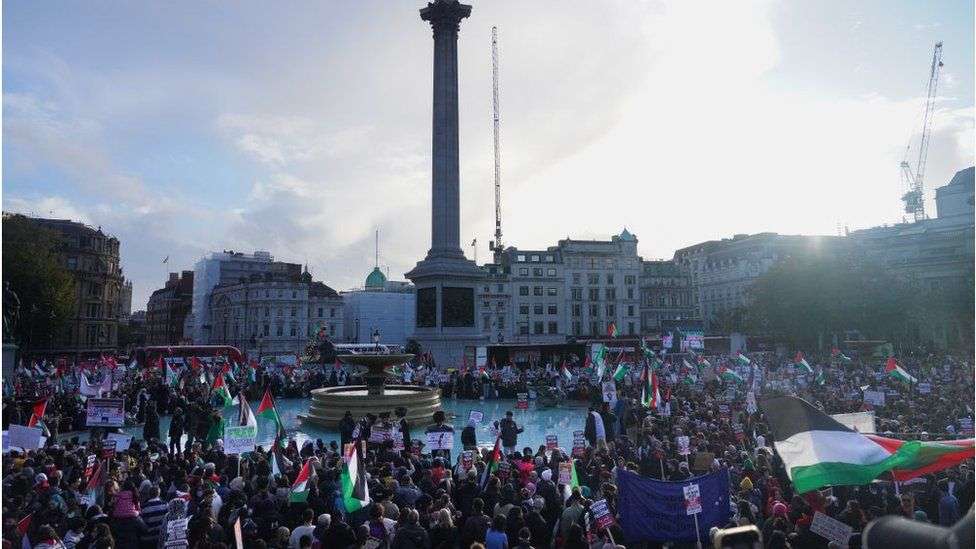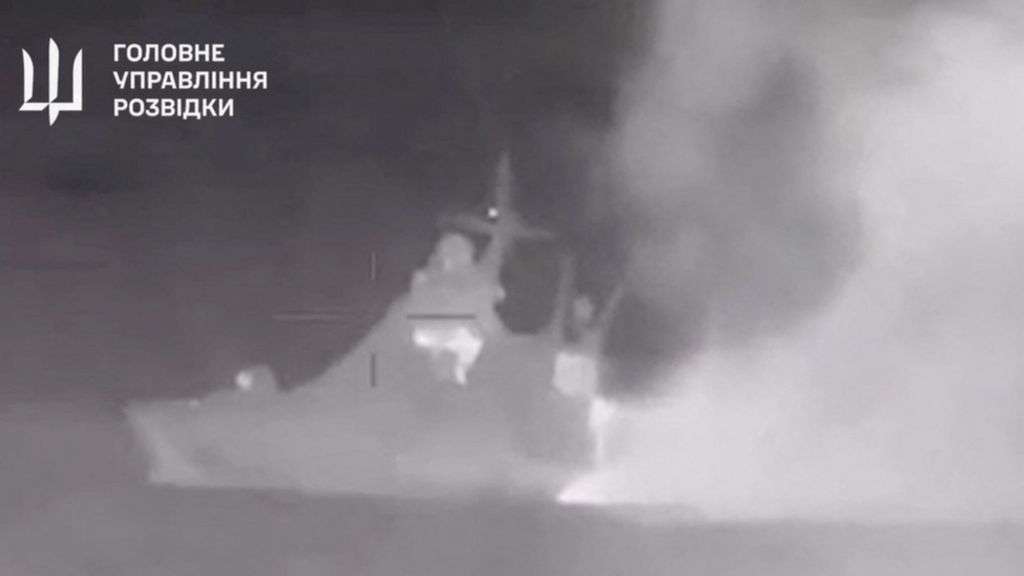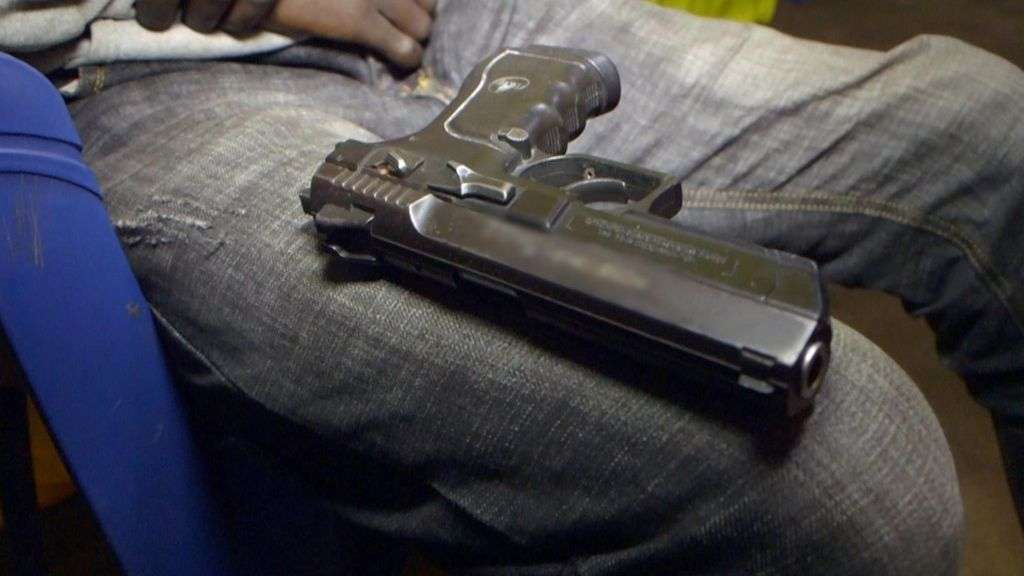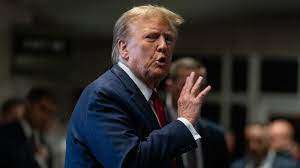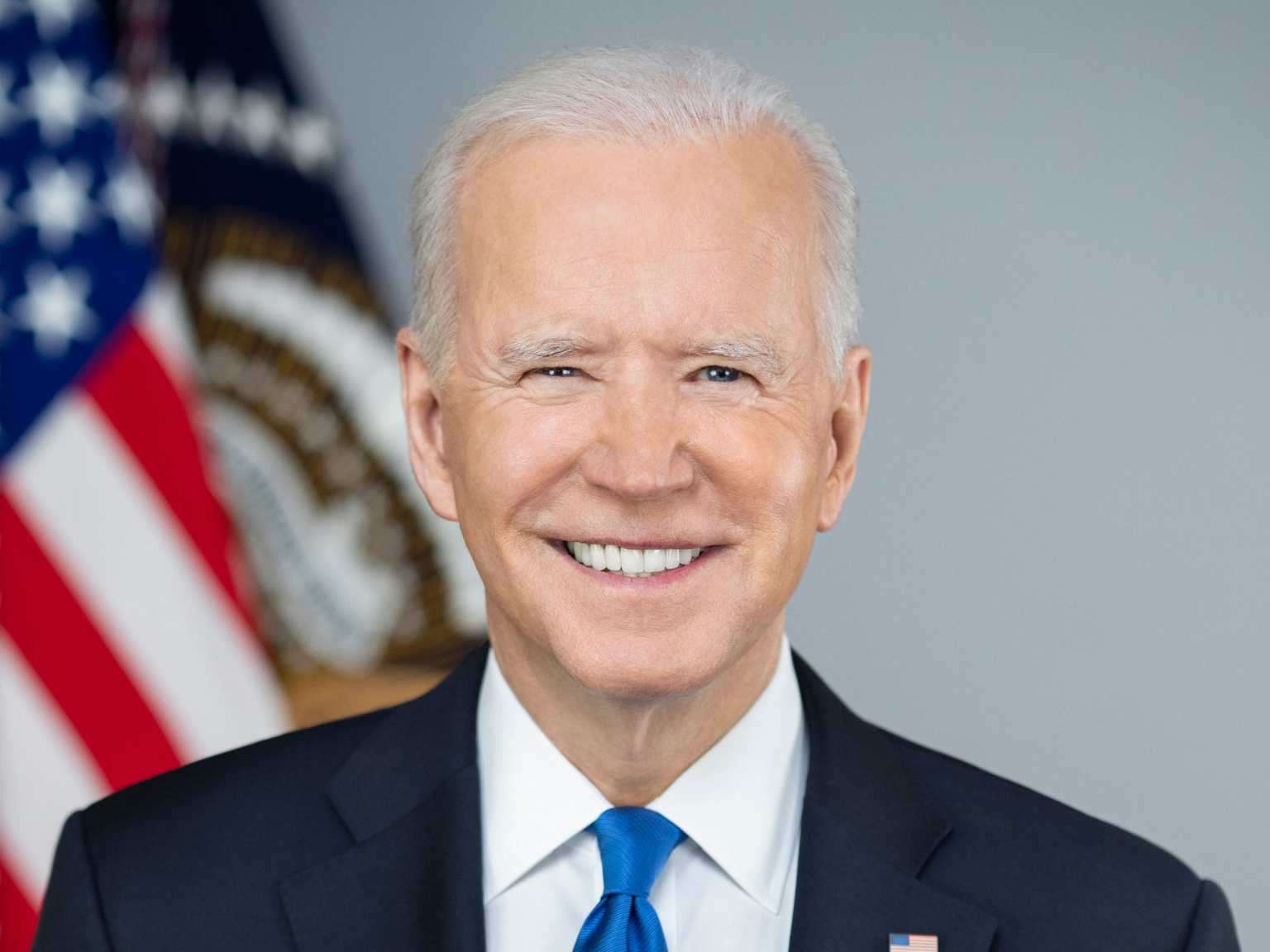Rishi Sunak has said he will hold the Met Police chief "accountable" over a pro-Palestinian march set to take place on Armistice Day.
The prime minister has criticised the timing of the demonstration in London as "provocative and disrespectful".
But Sir Mark Rowley rejected calls by campaigners to ban the protest, saying such a move would be a "last resort".
Protests have been held in London, and other cities globally, each Saturday since the Israel-Gaza war began.
Mr Sunak will use a lunchtime meeting with Sir Mark to "seek further assurances" that the Met Police will be "robust" in their handling of the march over the remembrance weekend, the prime minister's official spokesman told reporters.
The spokesman added that the PM considered the protest "completely inappropriate" and "provocative" but that he would not be putting pressure on Sir Mark to ban the march.
Ahead of that meeting, Mr Sunak called the green-lighting of the march a "decision that the Metropolitan Police Commissioner has made".
"He has said that he can ensure that we safeguard remembrance for the country this weekend as well as keep the public safe," Mr Sunak told broadcasters this morning.
"Now, my job is to hold him accountable for that."
Mr Sunak said his government had asked the police for information on how they would safeguard remembrance events in central London.
"More broadly, my view is that these marches are disrespectful and that's what I'll be discussing with the police commissioner later today," he added.
Sir Mark was due to appear at an event at the Institute for Government today, but it was postponed less than two hours before it was scheduled to begin.
Power to ban protest 'incredibly rare'
On Monday, the Met publicly urged organisers of the march to postpone the event, which is due to take place in central London, saying it would not be "appropriate".
Mr Sunak and Home Secretary Suella Braverman also criticised the timing of the event, which tens of thousands of people are expected to attend, while Conservative MP Tobias Ellwood, the former defence minister, appealed to organisers to "think again" and hold the rally on another day.
But organisers have refused to postpone, pointing out the planned route does not go past the Cenotaph war memorial and the march is due to begin at 12:45 after a two-minute's silence has been held.
On Tuesday, Sir Mark resisted calls, including from pressure group Campaign Against Antisemitism, to request powers from the home secretary to ban the march.
The group claimed previous marches met the threshold test for public disorder that would justify the ban.
"As we approach remembrance weekend, where we remember the heroes who defended our freedoms and fought against antisemitic hatred, we must honour their memory by banning demonstrations that abuse those freedoms to call for violence against Jews," the group said.
Sir Mark said that while police can request such powers if a threat of serious disorder emerges, the "very high" threshold for doing so had not yet been reached.
He added that the use of the power was "incredibly rare" and there must be no other way for police to manage the event.
Sir Mark said he was concerned about the escalating risk of disorder caused by splinter groups breaking off from the main demonstration on Saturday, saying the threat posed by them would be monitored this week.
Earlier, Veterans Minister Johnny Mercer said he fully recognised "the tensions at play" but urged people to come to London for remembrance events.
"I know that elderly veterans will be coming to London and measures will all be in place to make sure that people can go about remembrance in the way they want to unmolested by any of the other events taking place this weekend," Mr Mercer said.
Protest organiser Chris Nineham, from the Stop the War Coalition, said: "We do everything we can as stewards to make sure there is nothing antisemitic or calling for violence in our demonstrations. For us, this isn't about religion, it isn't about race."


